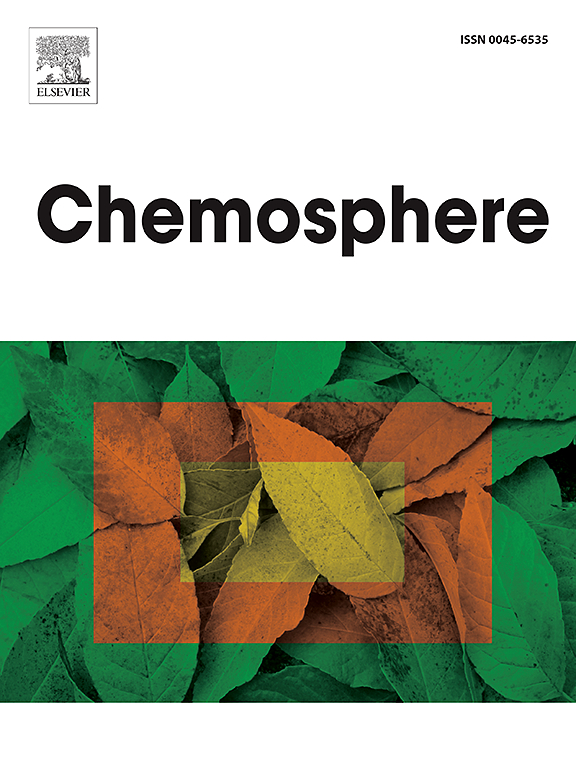工业废油吸附脱酸:生物柴油绿色预处理的动力学分析
IF 8.1
2区 环境科学与生态学
Q1 ENVIRONMENTAL SCIENCES
引用次数: 0
摘要
本研究提出了一种生产生物柴油的创新方法,研究了各种吸附剂在减少废食用油(WCO)酸度方面的潜在用途。以WCO为原料,碱酯交换法制备生物柴油是一种成熟的工艺。然而,这种原材料的质量会因其来源、用途和储存条件而有所不同。本工作使用的两种废油样品WCO1和WCO2的游离脂肪酸(FFA)含量分别超过现行标准的3.48%和1.05%。这可能会阻碍酯交换过程的生产率,因此需要脱酸。吸附法是一种简单、低成本、有潜力的预处理方法。膨润土、生物炭、沸石和工业废料都是潜在的吸附剂。然后在FFA吸附试验中对吸附剂进行评价。工业废水表现最好,酸性降低WCO1和WCO2分别为89.7%和66.7%。更详细的研究探讨了温度(25-80℃)和油/吸附剂比(2-8)对脱酸性能的影响。在0 /A比为8的条件下,在40℃条件下6 h吸附量最大,吸附量为34.3 mg/g。最后,利用得到的实验数据进行动力学研究,考虑线性化和非线性化两种主要的动力学模型,对预处理工艺进行优化。本文章由计算机程序翻译,如有差异,请以英文原文为准。

De-acidification of waste cooking oils by adsorption on industrial waste: Kinetic analysis of a green pretreatment for biodiesel production
This study presents an innovative approach to biodiesel production, examining the potential use of various adsorbents to reduce the acidity of waste cooking oils (WCO). The production of biodiesel from WCO via alkaline transesterification is an established process. However, the quality of this raw material can vary based on its origins, uses, and storage conditions. This work utilised two waste oil samples, WCO1 and WCO2, with free fatty acid (FFA) contents of 3.48 % and 1.05 %, respectively, exceeding the current standards’ limits. This could hinder the productivity of the transesterification process, thereby necessitating deacidification. Adsorption is a straightforward and low-cost potential pretreatment method. Bentonite, biochar, zeolites, and industrial waste serve as potential adsorbents. The adsorbents were then evaluated in FFA adsorption trials. Industrial waste demonstrated the best performance, resulting in acidity reductions of 89.7 % and 66.7 % for WCO1 and WCO2, respectively. A more detailed study explored the influence of temperature (25–80 °C) and the oil/adsorbent ratio (2–8) on deacidification performance. The maximum adsorbent capacity was achieved after 6 h at 40 °C for an O/A ratio of 8, resulting in 34.3 mg/g. Finally, a kinetic study was conducted using the experimental data obtained, considering the main kinetic models in linearised and non-linearised forms to optimise the pretreatment process.
求助全文
通过发布文献求助,成功后即可免费获取论文全文。
去求助
来源期刊

Chemosphere
环境科学-环境科学
CiteScore
15.80
自引率
8.00%
发文量
4975
审稿时长
3.4 months
期刊介绍:
Chemosphere, being an international multidisciplinary journal, is dedicated to publishing original communications and review articles on chemicals in the environment. The scope covers a wide range of topics, including the identification, quantification, behavior, fate, toxicology, treatment, and remediation of chemicals in the bio-, hydro-, litho-, and atmosphere, ensuring the broad dissemination of research in this field.
 求助内容:
求助内容: 应助结果提醒方式:
应助结果提醒方式:


